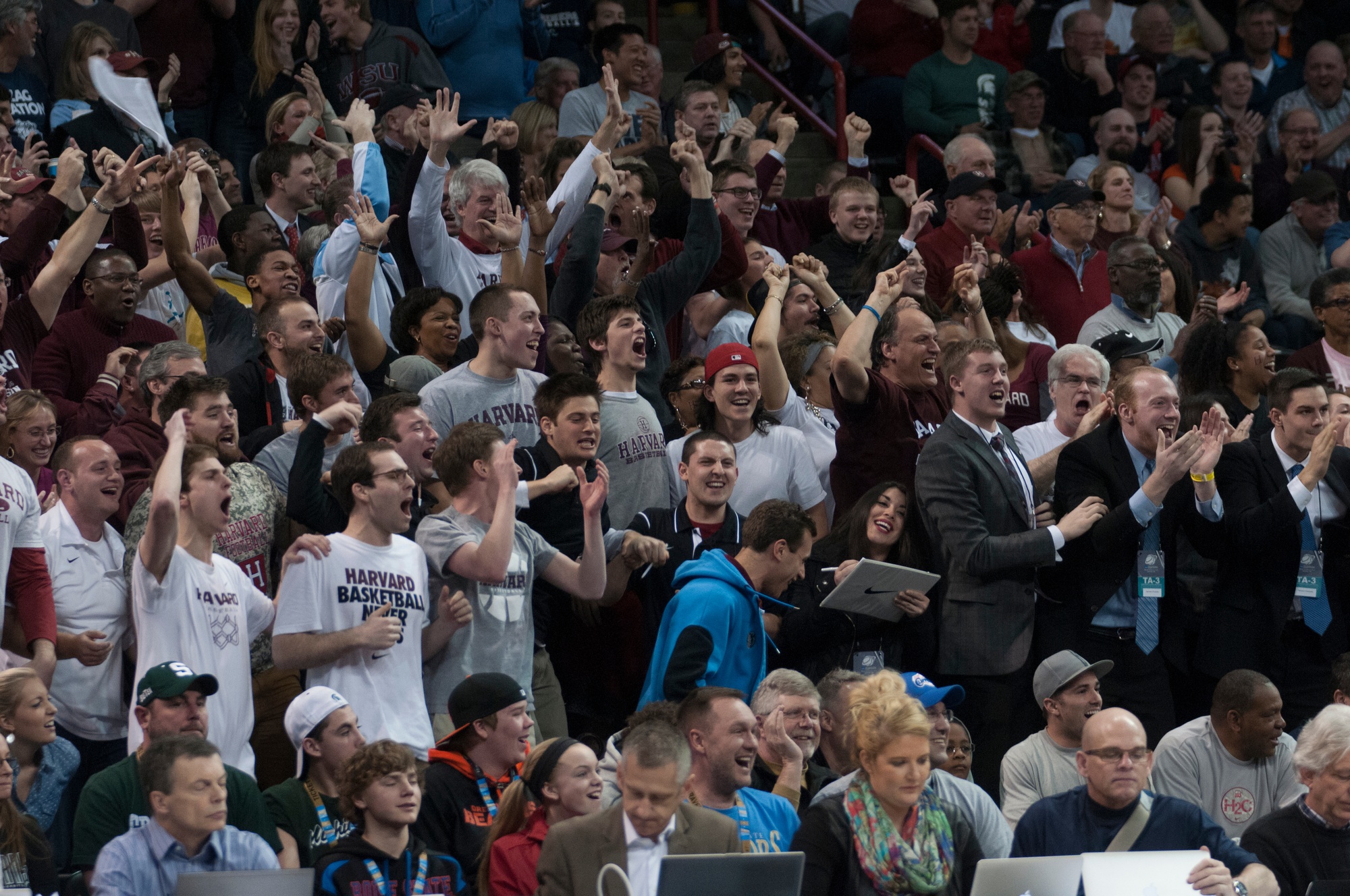
News
Summers Will Not Finish Semester of Teaching as Harvard Investigates Epstein Ties

News
Harvard College Students Report Favoring Divestment from Israel in HUA Survey

News
‘He Should Resign’: Harvard Undergrads Take Hard Line Against Summers Over Epstein Scandal

News
Harvard To Launch New Investigation Into Epstein’s Ties to Summers, Other University Affiliates

News
Harvard Students To Vote on Divestment From Israel in Inaugural HUA Election Survey
Looking for the Stories Beyond the Box Scores

“We do not lose like this.”
Then-co-captain Brandyn Curry had stood up in the locker room, turned to his teammates, and raised his voice.
“We are not going to lose this game like this.”
The Harvard men’s basketball team was on the biggest stage in college hoops—it was taking on perennial powerhouse Michigan State, whom both Los Vegas and the President had chosen to win the national championship, in the third round of the NCAA Tournament. And, at the half, it was losing. Badly.
So Curry took it upon himself to address his team at intermission. And everyone knows what happened next. Against the favorites, the Crimson began to climb back. Curry did his part, knocking down jumpers behind the three-point line, while then-junior Wesley Saunders and classmate Steve Moundou-Missi connected down low to bring the game within striking distance.
Then, with 7:12 remaining, co-captain Laurent Rivard did what he does best. He nailed a trey to give Harvard its first lead of the contest, 72-70.
***
At 6’4” and 185 pounds, Kjetil Borch was a long, lean, two-time defending champion of the single sculls at Head of the Charles. At 6’6” and 220 pounds, Mahe Drysdale already owned Olympic gold in the event. But neither were able to outrow 5’10”, 155-pound Andrew Campbell ’14.
Despite a collision with a goose that put him at a standstill, Campbell set a new course record on the Charles River—17:11.64 over the winding three-mile long distance—to win the championship singles at the 50th Head of the Charles Regatta this October.
And Campbell, a determined athlete who very narrowly missed the 2012 Olympics and has his sights set on Rio, did so on his hometown course, with thunderous support and noise coming from coaches, former teammates, and friends as he closed in on the home stretch past Weld Boathouse.
***
It had been a 9-0 season thus far—and it was only three minutes and 44 seconds away from 10-0 and an eighth straight win at The Game. But with the score knotted at 24-all and the Ivy League title in the balance, Harvard football needed a fix. Fast.
That’s when senior quarterback Conner Hempel found junior wide receiver Andrew Fischer sprinting down the right sideline. Hempel launched the ball into the air, and Fischer caught it in stride. Three strides later, Fischer was in the end zone.
Harvard was on top once more, now just seconds away from perfection as the crowd went wild at Harvard Stadium after a morning filled with tailgates, up and downs, and ESPN’s College GameDay.
***
While the first question about a sporting event may be about the final score, the locker room talk that inspired the comeback may have been just as important. While flashy plays and Cinderella stories are what show up in the sports page every morning and fill people’s Twitter feeds, the hustle play that gave the team the ball 30 seconds earlier may have been just as crucial to the team’s success.
Although sports are often presented as a matter of impressive—or not so impressive—statistics, sportswriting is about looking past the numbers, and into the narratives. Because ultimately, win or lose, the game is about the people—the players, coaches, and fans—involved.
The two of us have written about well over 150 different games combined, juggled the coverage of 42 varsity sports, and, in the past 12 months, edited close to 600 stories apiece.
But what stands out about our shared experience has been the intangibles—the emotion on the court, the passion of the beat writers, the electricity of the crowd on the field, in the stadium, or in the arena.
People at Harvard often complain about a lack of cohesion and disconnect among members of our community. They lambaste the dearth of open social spaces, and the hubris that taints many students.
It takes just one trip across the river (or to the MAC), however, and 40 minutes in Lavietes, or several hours in Harvard Stadium, or three periods at the Bright, to suddenly feel like a part of nearly four centuries of tradition and history.
One can easily feel lost at Harvard, but in the stands and sitting on press row, it’s hard not to be gripped by a sense of pride and belonging.
Our time as Sports Chairs has been shaped entirely by the people around us whose stories we try to tell every day. It’s the injured but headstrong team captain, the bench player who sinks a gamewinner, the coach who’s been here since before either of us were born, the hardworking photographer, and the managing editor who puts up with our antics every day.
Harvard’s about the people—so the next time you open the newspaper, look past the stats and remember that.
—Staff writer Cordelia F. Mendez can be reached at cordelia.mendez@thecrimson.com.
—Staff writer Juliet Spies-Gans can be reached at juliet.spies-gans@thecrimson.com.
Want to keep up with breaking news? Subscribe to our email newsletter.
